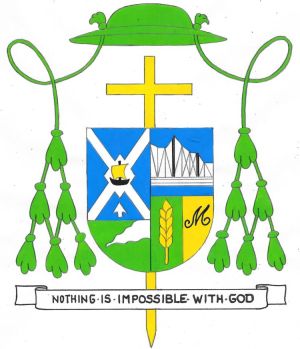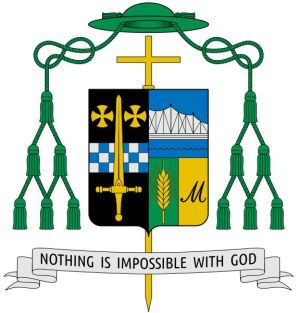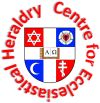David Allen Zubik: Difference between revisions
Knorrepoes (talk | contribs) m (Text replacement - "↵↵''' {{uc:{{PAGENAME}}}} '''↵" to "''' {{uc:{{PAGENAME}}}} ''' ") |
Knorrepoes (talk | contribs) m (Text replacement - "{{rel}}" to "{{religion}}") |
||
| Line 32: | Line 32: | ||
[[Heraldic literature - Ecclesiastical heraldry|'''Literature''']]: Information from the diocese | [[Heraldic literature - Ecclesiastical heraldry|'''Literature''']]: Information from the diocese | ||
{{ | {{religion}} | ||
{{media1}} | {{media1}} | ||
[[Category:Roman Catholic bishops|Zubik]] | [[Category:Roman Catholic bishops|Zubik]] | ||
Revision as of 07:59, 25 July 2023
DAVID ALLEN ZUBIK
Born : September 4, 1949
Deceased :
Auxiliary Bishop of Pittsburgh, 1997-2003
Bishop of Green Bay, 2003-2007
Bishop of Pittsburgh, 2007-present
| Auxiliary Bishop of Pittsburgh |
Bishop of Green Bay |
| Bishop of Pittsburgh |
Official blazon
Origin/meaning
As common in US episcopal heraldry, the arms show the arms of the diocese impaled with the personal arms of the bishop.
The arched span symbolizes his native Ambridge and much of southwestern Pennsylvania, which are home to bridges and bridge builders. Pittsburgh has been called the “city of bridges.” As a successor of the apostles, Bishop Zubik has been entrusted with preserving and protecting the truth of the faith by building and maintaining the bridge which ensures, in all times and places, the continuity in faith between Christ and his Church.
The golden wheat sheaf represents the fruit of the earth. The gift of Bishop Zubik’s vocation was recognized and nurtured by Father Edward R. Farina whose surname means “grain” or “wheat.” Wheat is also the work of human hands. Bishop Zubik’s Polish and Slovak ancestors are not strangers to labor and toil – values held dear to the Bishop himself. Wheat can be transformed into bread, the simple food for much of the world. Of most importance, the wheat sheaf symbolizes the Eucharist, the bread of eternal life which feeds and nourishes God’s people. Further, the name Zubik comes from the Polish word “zlobek” which means “wheat,” highlighting that Jesus is the Bread of Life. The sheaf is placed in a field of green, the color of life and hope.
The letter “M” represents the Blessed Mother for whom the Bishop has a special devotion, passed on to him by his maternal grandmother. The symbol imitates the coat of arms of His Holiness, the late Pope John Paul II, who called Bishop Zubik to the episcopacy in 1997. In the Gospel of Luke, Mary is portrayed as the first faithful disciple, the one who heard and heeded God’s word. Mary’s discipleship inspires Bishop Zubik who pledges his faithful obedience to the will of God and to the Vicar of Christ on earth.
The scroll beneath the coat of arms contains Bishop Zubik’s motto, “Nothing is Impossible with God,” and comes from Luke 1:37 where the angel Gabriel visits Mary and reveals to her that she is about to bear the son of God. When Mary asks how this can be since she is a virgin, Gabriel offers his reply: “Nothing is Impossible with God.”
The achievement is completed with the heraldic insignia of a prelate of the rank of bishop.
Literature: Information from the diocese
Religious or Ecclesiastical heraldry portal
This page is part of the Ecclesiastical heraldry portal |
Heraldry of the World |
|
Catholic heraldry
|
Other Christian churches Other religions
|




